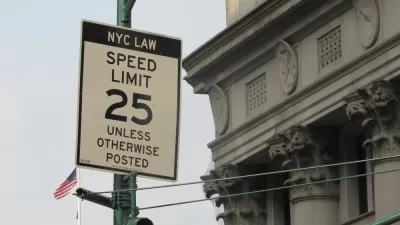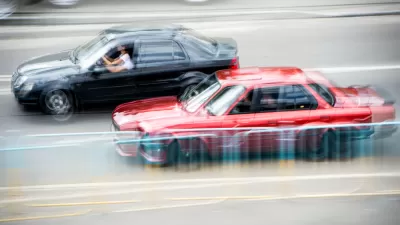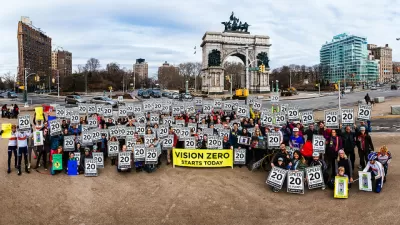While advocates say technology can be a critical tool in reducing the carnage on U.S. roads, CNN can't get over the idea as an invasion of privacy and personal liberty.
CNN recently reported on air, in a clip shown above but also picked up widely by local news around the country, that the National Transportation Safety Board recently announced a recommendation to require automakers to limit the speed of cars.
"The NTSB is calling on the federal government to start incentivizing carmakers to put smart speed limiter systems in new cars," according to an article by Pete Muntean sharing the report. Speed limiters work by cross referencing local speed limits and a car’s GPS position, explains Muntean. Speed limiting technology is recognized for its potential to benefit traffic safety if applied to cars. So far, the technology has only been applied at scale to electric scooter rental companies, however.
Erin Marquis, writing for Jalopnik, responded to the CNN report with a highly critical response to the television's framing of the news, describing the video shown above as " surprisingly and completely dishonestly reported."
Listen, I get it: Who doesn’t like a snappy headline that clicks well? A premise that will get folks active in the comments and lead them to hitting those all-important like and subscribe buttons. But what NTSB actually did was recommend a timetable to put together incentives for automakers that put speed limiters in new cars. Not sure how you get from that to “Our cars are in danger of being monitored and controlled by the government!” Even CNN admits, this “limitation” could come in the form of an audible or visual warning—a feature already familiar to anyone with a newer vehicle.
Marquis notes that NTSB's suggestion isn't even the most aggressive of the options. Intelligent Speed Assistance, like already required on new cars in Europe, is the other option. "Several American automakers, like Ford and Jeep, got a head-start and have been installing the tech in European models for years. A new pilot program in New York City put ISAs in 50 government fleet vehicles — the first city in the nation to do so," explains Marquis.
FULL STORY: Feds Recommend Speed Limiting Technology in New Cars: Everybody Panic

Alabama: Trump Terminates Settlements for Black Communities Harmed By Raw Sewage
Trump deemed the landmark civil rights agreement “illegal DEI and environmental justice policy.”

Planetizen Federal Action Tracker
A weekly monitor of how Trump’s orders and actions are impacting planners and planning in America.

Why Should We Subsidize Public Transportation?
Many public transit agencies face financial stress due to rising costs, declining fare revenue, and declining subsidies. Transit advocates must provide a strong business case for increasing public transit funding.

Understanding Road Diets
An explainer from Momentum highlights the advantages of reducing vehicle lanes in favor of more bike, transit, and pedestrian infrastructure.

New California Law Regulates Warehouse Pollution
A new law tightens building and emissions regulations for large distribution warehouses to mitigate air pollution and traffic in surrounding communities.

Phoenix Announces Opening Date for Light Rail Extension
The South Central extension will connect South Phoenix to downtown and other major hubs starting on June 7.
Urban Design for Planners 1: Software Tools
This six-course series explores essential urban design concepts using open source software and equips planners with the tools they need to participate fully in the urban design process.
Planning for Universal Design
Learn the tools for implementing Universal Design in planning regulations.
Caltrans
Smith Gee Studio
Institute for Housing and Urban Development Studies (IHS)
City of Grandview
Harvard GSD Executive Education
Toledo-Lucas County Plan Commissions
Salt Lake City
NYU Wagner Graduate School of Public Service





























